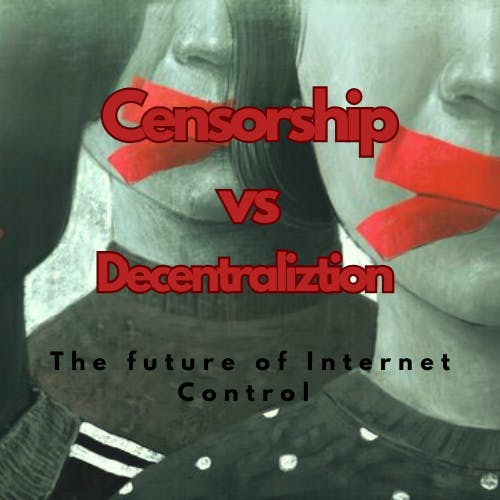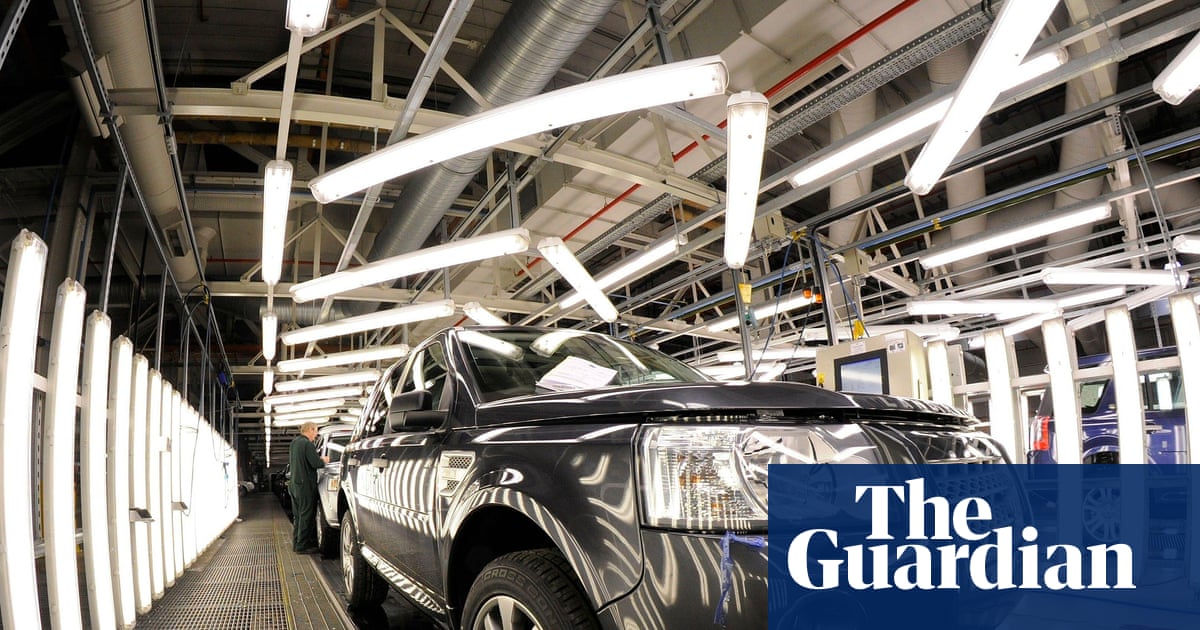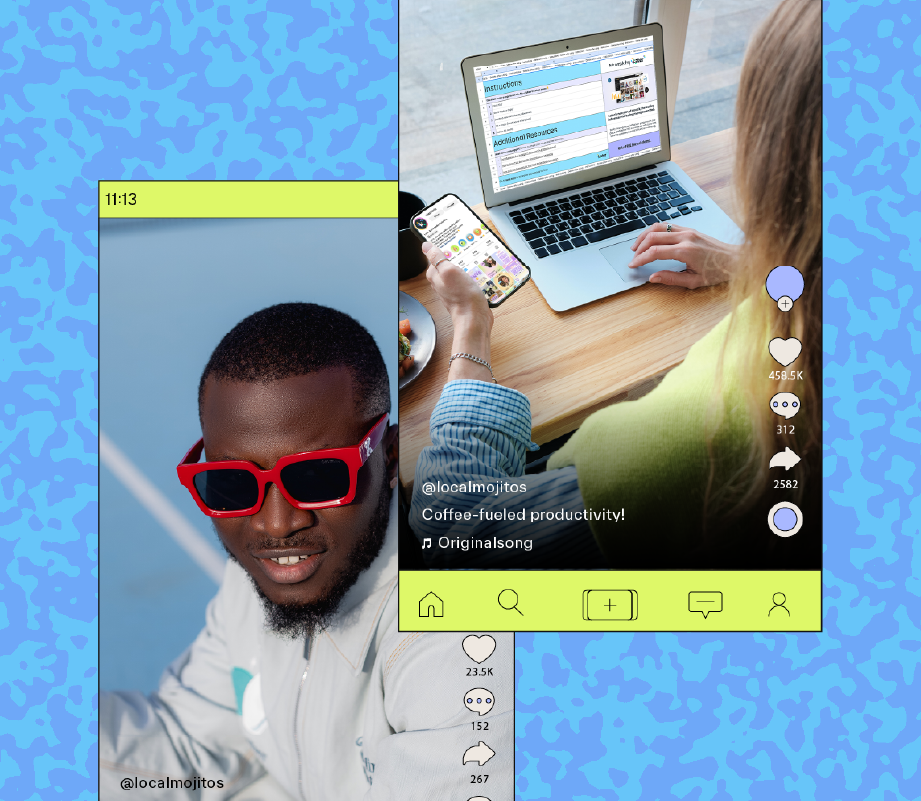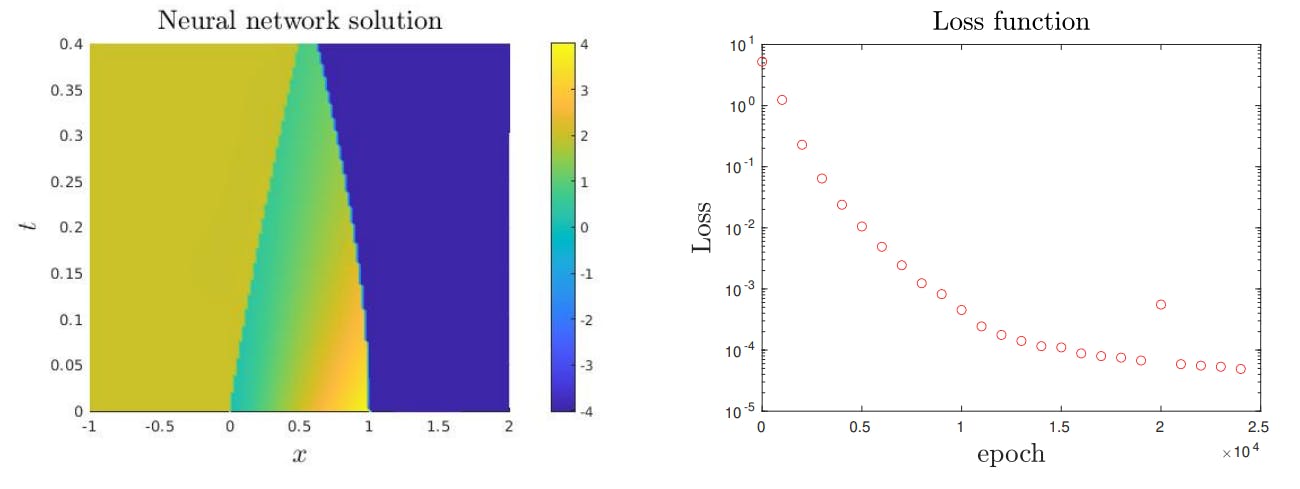Today, we live in what can sometimes feel like a digital utopia, one where the internet brings the world closer together. Social platforms mediate communication and connect us regardless of time, place, or distance. But with this powerful connection comes a growing need for regulation and control.
Censorship is the restriction of interactions and the flow of information online, typically controlled by a few powerful tech companies—and sometimes government bodies—who run the platforms we depend on.
Through algorithms, these platforms determine what content we see and what gets silenced. They access the data we provide, knowingly or unknowingly. And over time, this growing influence over our freedom of expression has sparked growing concern. Is our privacy protected? Do we truly have freedom of expression, as we believe we do?
As these questions arise, so does the idea of a decentralized internet. An internet where control shifts from corporations & governments to individuals—a democratized internet.
How Centralized Platforms Enable Online Censorship
Tech giants like Google, Facebook, Amazon, and Microsoft own the web, literally. To regulate activity on their platforms, they use policies enforced by algorithms. Facebook also relies on human moderators to identify profiles that violate its community guidelines. And they also encourage users to self-censor.
These systems aim to filter out harmful content for users. However, algorithms are also allowed to control what content is displayed and to whom. Algorithmic bias can hide posts, even when they don’t violate any guidelines per se. These social platforms also collect user data to personalize content feeds and target ads. This data, such as name, age, and location, is often shared with third parties for profit.
Governments also play a role in censorship. In China, for example, state-run algorithms, like the Great Firewall, censor political content. Another instance is this news report by Al Jazeera, where Mark Zuckerberg claimed that the U.S. government pressured him to censor COVID-related posts. These cases raise ethical concerns about who decides what we see online.
Promise of Decentralization
Decentralization means no single entity owns or controls the internet. Instead, the internet becomes user-controlled and democratized. Power is distributed across users through peer-to-peer (P2P) systems and blockchain technology. P2P networks eliminate the need for a central server, such as Facebook, allowing users to interact directly with each other. While blockchain ensures data is secure, transparent, and immutable (not easily tampered with or altered).
Decentralization also promises censorship resistance: technologies like IPFS (InterPlanetary File System) give users control over their content. IPFS distributes data across multiple servers, reducing the chances of unauthorized access, unlike centralized systems (Brave). This system makes sure that no one party can single-handedly remove or restrict content, which encourages transparency and reduces censorship.
Is It Possible to Have an Internet Free from Censorship?
Although decentralized systems are already being implemented, they won’t completely replace centralized ones just yet. A complete shift would depend on our willingness to trade the convenience of centralized systems for control, as well as policy changes to dismantle centralized corporate giants.
A truly censorship-free internet may be more idealistic than realistic. Why? Because big companies have deep resources and powerful influence. A more likely outcome is a hybrid model, where centralized platforms integrate decentralized tools, providing users with more transparency and choice.
Even in decentralized systems, gatekeepers will still exist, such as developers with coding expertise, influential users who may attempt to dominate the system, or malicious actors seeking to exploit it. Harmful content and misinformation may still spread, and these platforms could still be compromised.
Free speech is important, yes, but honestly not all speech should be allowed to thrive. And I agree with Volker Türk when he said, “Allowing hate speech and harmful content online has real-world consequences” (source). More reasons why a censorship-free internet may not be realistic.
New Forms of Control
Decentralization is promising, indeed. While it offers more freedom, we can’t overlook the possible challenges it introduces. This raises the question: Would a decentralized internet mean that anyone can spread any form of information, including both valuable and harmful content?
Well, no. On a decentralized internet, control has simply shifted and hasn’t been cancelled.
Here, regulation becomes a collective responsibility. Communities make decisions through voting or smart contracts (self-executing digital agreements coded into the system). For instance, a community might use a smart contract to remove posts containing nudity automatically. These rules can’t be changed unless a new contract is created to override the old one.
DAOs (Decentralized Autonomous Organisations) are another form of decentralized governance. In these systems, those with more technical skill or greater token ownership often become the new gatekeepers and control decision-making.
Conclusion
For a free and open internet to exist, we must address the flaws in centralized systems and build better, fairer alternatives. Decentralization may not eliminate censorship completely, but it offers the tools to create a more transparent and participatory web. In my opinion, the future of internet control isn’t about choosing one model over the other. Instead, it’s about reshaping the balance of power so everyone has a voice!









